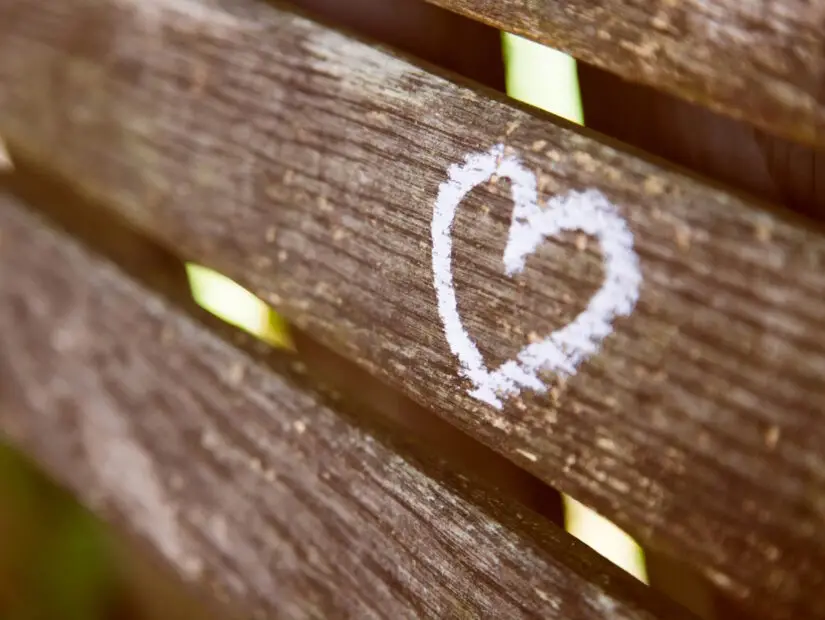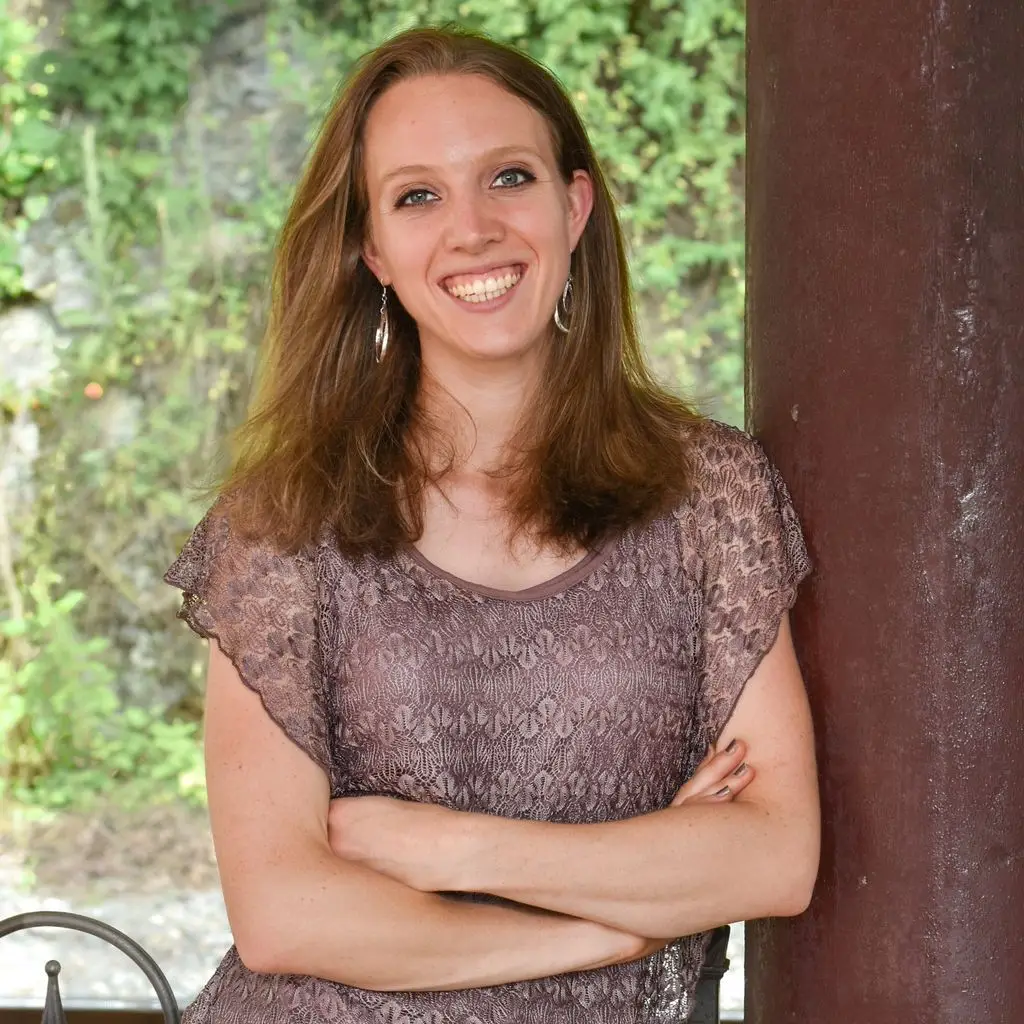Brave Enough to Hurt

This post was originally published on The Road to Brave.
“Love is easy.”
Simple, yes. But easy—how soft and kind the lie
That lets us hide the pain inside
And choose an easier path—one that holds
The kindest side of love aloft, and hides
The broken, wounded, hurting side
That speaks of joy, but not the sorrows
We bear for those we chose to love.
I scribbled on a scrap of paper as our car rolled along, my sister in the driver’s seat, a hum of conversation going on around me. I’m no poet (and usually my type-A brain requires really solid meter), but I didn’t know how else to try to capture the lesson that God had been recently working in my own heart and mind.
Oft love is borne on light warm wind
Of lightness and of innocence
And deep, we think, its roots to be
A mighty oak, an ageless tree
Though tested not by storm.
When my mom was diagnosed with breast cancer, I immediately learned by experience—though I did not understand and acknowledge for another few years—that I didn’t know how to handle the depth of hurting emotions that come when someone you are deeply and intimately connected with is also hurting. Sure, I knew what not to do. You don’t do drugs. You don’t do alcohol. I was a good Christian girl—that was easy. But what about just numbing all your feelings so you can handle them, so you can be strong, so you don’t have to feel all that miserable ache of not being able to fix it? No one ever said that wasn’t okay.
But what, when bends and twists the road
And turns, or tears, the page, and rain
Begins to slowly fall, and bleed the ink?
What then? When story whispers, soft,
A tale we did not want to tell
A height from which we slipped, and fell
And found ourselves upon a new and weary path?
The future of education in your inbox.
Get productivity tips, commentary, and Unbound updates sent to you!
There are plenty of scenarios in life where the better option is to not just sit and hurt—unhealthy relationships or environments case in point. That’s a whole different conversation. But in the course of healthy human relationships, sometimes we will hurt deeply for those we love. Sometimes because of illness. Sometimes because of loss. Even though I know better, there were times growing up where I was scared to lean in because I was scared of being hurt by a love that deep.
Sometimes the bravest thing we can do is to create space or step away from something. But other times, the most courageous step we can take is to choose to lean in and love—to be brave enough to hurt.
Brave Enough to Feel
Yet then came I to a sudden place
Where pain and hurt had pierced
To marrow, or else come close, and
I discovered this unknown place
Where I could form a shield of space
—of power, yes, but without grace
And black and gray, admittedly,
And dullest sounds, and without rain
Or sun, yet one where I could choose
To numb the pain, or lessen still
The biting chill of coldest sorrow
Through iron will, could I here now
Choose not to feel.
And here, at least, could I then put
One weary foot before the next, and bear
The rough road, and though my heart may tear
I do not taste the full bitter draught of pain—
But leave a safe place, a quiet space
Between the open scars and I
So I can better hold the flame
Without feeling warmth or burn.
When I was a kid working through a battery of strengths and personality tests, I scored off the charts in compassion and empathy. That’s a good thing, except that this world is constantly giving us reasons to hurt for other people, and that is a lot to deal with. And sometimes, when the people we love are hurting, it’s so much easier to just shut down our emotions by a few degrees. Or a degree of magnitude. Someone made a painful choice and is living with the consequences? Ouch. It’s easier to not feel that or to just get mad, because anger is easier to handle than sorrow. Someone is dealing with a difficult diagnosis or a physical injury? Ouch. It’s easier to shut down our own emotions than to deal with them. Someone has experienced a deep loss? Ouch. It’s easier to keep those welling-up feelings on the internal sidelines and focus solely on the external.
Of course, sometimes survival mode requires that this be necessary in a limited capacity. We can’t be blubbering all over when our loved one needs us to be strong for them, and sometimes we’ve got to temper our own natural emotional responses for a time. The issue is, if it’s not just “a time”—if we don’t ever make space for it on our end—if we don’t process through that—we end up slowly stripping our capacity for empathy and love, bit by bit.
Brave Enough to Ache
Yet then came I by another road
Which cut through mountain and valley deep
And one which drove through strength and will
To pierce the space, the numb embrace
And send a shaft through that safe place.
And I, as one come swift awake
Could not with desperate outstretched hand
Hold back the wind, or else withstand
The whispered shout from sky to sky
The fire and ice that burned inside
And left no shield between me
And the open scars.
The thing is, when we’re not brave enough to hurt, when we shut down the painful feelings, we also blunt and numb our capacity to feel good things. Even months after my mom’s cancer was in remission, I found myself still living in the “shut it down” mode—a flip of the internal switch, and fare thee well, emotion. It got easier and easier to just stay in that mode constantly. Then God, by His grace, pointed out—“That’s not how I made you to be.”
Even though it was uncomfortable, I needed a wedge driven into the heart of my “never feel anything” mode. And driven it was. When I left for school, I tried to numb the increasing depths of loneliness and depression that came along with it. But eventually, my “shut off” switch couldn’t handle it, and I started learning for the first time how to process through uncomfortable feelings, rather than attempt to drive them away or bury them.
And I began wondering…was love only able to handle the joys and not the sorrows of life? I began wondering if maybe it was, in the end, a braver thing to feel for others. Even if it meant embracing both the highs of joyful seasons and the lows of aching through pain together.
When my sibling was diagnosed with a lifelong illness a few years afterward, I still didn’t have all the healthy coping skills figured out—but I knew I couldn’t shut this out, even if I wanted to. Sure, there were survival-mode moments as we navigated through hospital stays and some of the darkest moments of life to date. But they were moments. I realized that my love for my sibling was strong enough to endure through the depths of the sorrows as much as the heights of the joys.
Brave Enough to Love
“Love is easy”—but what then is love?
If hope we deny, and with tear-filled eyes
We turn our face and heart away,
Though outward strong, and loving still,
Yet inward stumble, and with breaking will
Choose to numb and not to fight?
For is not love then worth the pain?
Or is it stronger bonds which may bear the strain
But my heart weak, or my love less deep,
Than those who will carry the fullness of joy, and sorrow both
Without cheapening the cost?
Is love then worth the less to me, who would not feel the sting
That must come with joy?
Maybe it’s just me. But the longer I live, the more I realize that unhealthy methods of dealing with emotion are way more common in our culture than healthy ones. We hate discomfort, so we try to shut it out of our lives in any way necessary. But maybe, just maybe, the fullness of love means working through discomfort. Through aches and pain.
But God demonstrates his own love for us in this: While we were still sinners, Christ died for us.
Romans 5:8
Maybe, just maybe, being image-bearers of God doesn’t mean just choosing the highs of love and not the lows. Christ certainly could have shut down all feeling, but He instead bore the full depth of agony and separation from God that was the price of our redemption.
See what great love the Father has lavished on us, that we should be called children of God!
1 John 3:1
So many heroes of mine are in the trenches of day-to-day life, working with other people who are lost or particularly hurting. It would be so, so easy to lose hope in some of those situations. Watching people in recovery continue to make self-sabotaging decisions. Watching broken systems hurt already-hurting children. Watching inner-city kids wrestle with the different futures dependent on today’s decisions. Watching third-world families struggle with difficulties and questions I’ll never have to face.
That hurts.
But maybe, just maybe, being image-bearers of the God who is love means loving despite. Despite the fact that pain will be involved. Despite the fact that loving other humans means reckoning with the lack of control we have in life and in their lives. Despite the fact that we live in a broken world and we’ll all hurt along the way.
And so I chose the deeper love
Opened my heart to the open scars
No shield, no space, no haunting trace
Of numbness, but yet a better place
Where love may triumph, and carry I
The wounds and scars of those I
Chose to love.
This week, if necessary for the sake of love, may we be brave enough to hurt.

Victoria Schurter is the VP of Content and Development for Unbound. An Unbound graduate, Victoria has served in a variety of roles including student leadership, coaching, and in the Business and Leadership program. She is passionate about equipping young adults to recognize their potential, to know God, and make Him known in daily life.
When she’s not working on an Unbound project, you can find her scribbling on a novel, playing a favorite instrument, riding horses, watching a sunset, or dreaming up some new adventure that absolutely includes the Pacific coastline. One of the best parts of her world is walking alongside her fellow Unbound students as they make an eternal impact in their generation.


